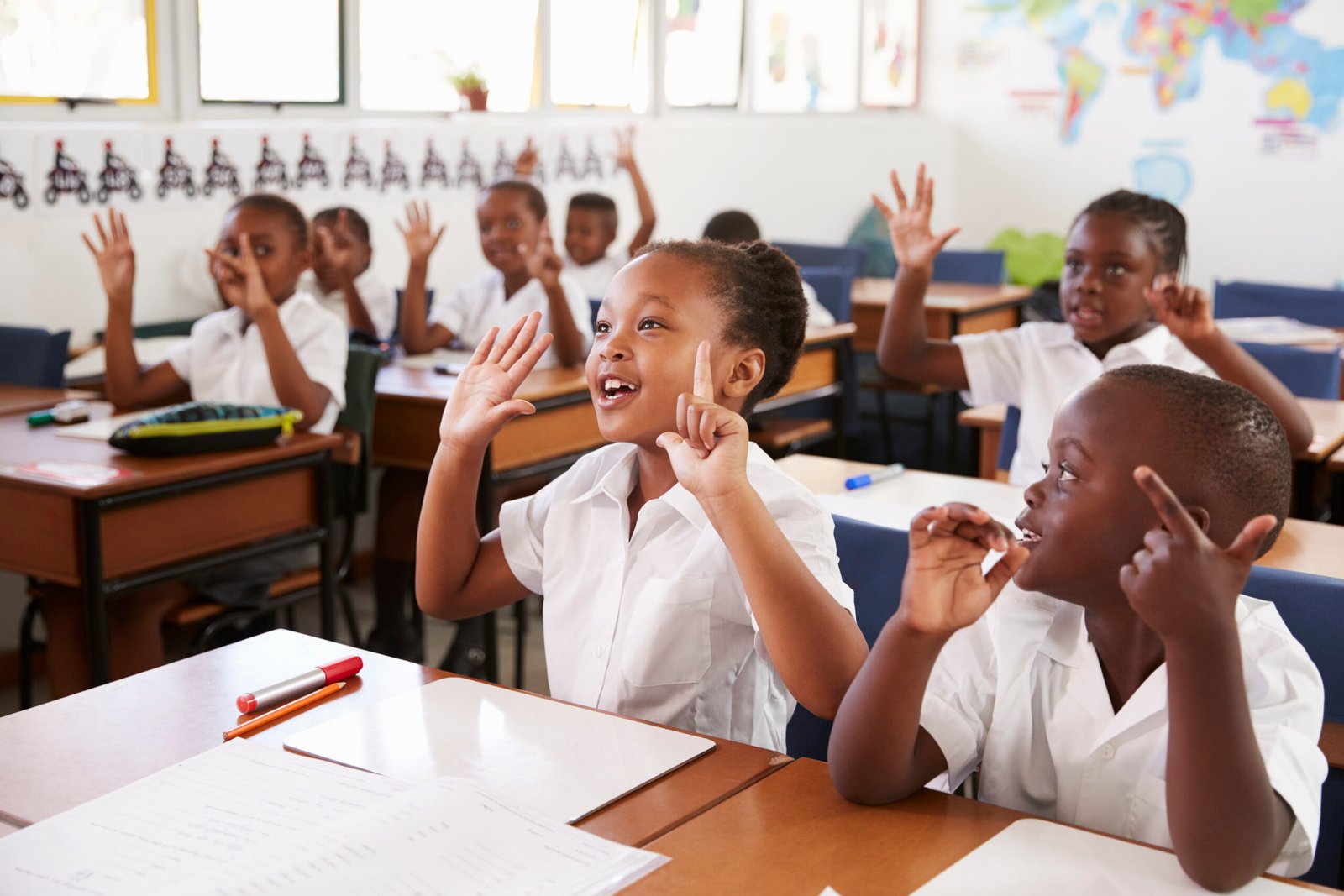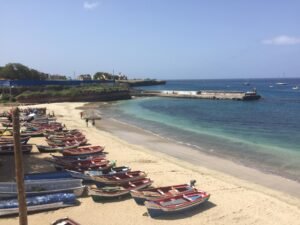A major challenge for families considering a move back to Africa is ensuring the continuity and quality of their children’s education. This is a personal concern for me as well, as my children are currently thriving in state schools in England, which are free and offer comprehensive education. The thought of relocating hinges significantly on finding schools that offer an education on par with what my children receive here. I am willing to pay for my children’s education, however, I find the exorbitant fees and never ending ‘other items’ charged by many international schools on the continent unreasonable.
If I take my son’s current school in London as an example, it’s not just the standard curriculum that makes it exceptional; it’s the wealth of extracurricular and co-curricular opportunities it provides. From swimming and basketball to museum visits, literary competitions and music lessons, these activities play a vital role in broadening the children’s horizons and skills.
As I explore schooling options across Africa, I’ve noticed that many schools seem to lack these extensive extracurricular activities. The focus is predominantly on academic subjects, often overlooking areas that I believe are crucial for preparing our children for this our rapidly evolving world. It’s high time we as Africans recognise that education extends beyond textbooks and classrooms. It’s about nurturing well-rounded individuals equipped to navigate and succeed in the modern world.
We Africans have always valued education as can be seen in the continent’s diverse schools. But navigating these choices requires careful consideration. It’s important to understand the educational environment in each country and ensure it matches your child’s present academic level or your aspirations for their future education before making a school selection. Know this:
- Educational Systems Vary Widely: Africa’s educational systems are as diverse as our cultures. These systems often reflect the historical influences of colonial powers but many have evolved to integrate both global and local educational standards. From British, French and American curricula to local educational frameworks, it’s crucial to understand the available systems and how they align with your child’s school history and future aspirations.
- International vs. Local Schools: Weigh the pros and cons of international schools, which very often offer globally recognised curricula and qualifications but also a diverse student body, against local schools that provide a more immersive cultural experience and curriculum that’s more aligned with national standards.
So, what are the key factors to consider when finding a school for your child?
- Curriculum and Accreditation: Identify schools with a curriculum that suits your child’s learning style and future educational goals. Do you prefer a British, American or French qualification for your child? Also, consider the school’s accreditation, ensuring it meets international or national educational standards. In Sierra Leone, I came across many private schools that failed to meet national standards. In Sierra Leone as in many other countries, school inspections are very rarely carried out.
- Cultural and Language Considerations: Choose a school that respects and integrates local cultures and languages, especially if you want your child to connect with their heritage. Additionally, consider the language of instruction and how it aligns with your child’s linguistic abilities. Do you want your child to be bilingual or is it important for your child to be in an English-speaking school?
- Quality of Education: Investigate the school’s academic track record, teacher qualifications, student-teacher ratios and special education services if your child needs these. A growing number of African countries are acknowledging the importance of Special Educational Needs (SEN) teaching and services.
- Extracurricular Activities: Look for schools offering a range of extracurricular activities that align with your child’s interests, whether in sports, arts or technology. These activities are crucial for holistic development.
- Location and Logistics: Consider the school’s location, distance from your home, transportation options and the safety of the surrounding area. Proximity to extended family and cultural centres might also be important.
- Costs and Budget: Analyse the fee structure, including tuition, extracurricular fees and other expenses. Watch out for the unexpected charges. In my experience, many international schools include annual re-enrolment fees and development fees; with books, stationery and lunch being extras. Consider your budget as you are unlikely to find bursaries or financial aid programmes that you will be eligible for.
- School Facilities and Resources: Evaluate the quality of the school’s facilities, including classrooms, libraries, laboratories, sports facilities and technology resources. These play a significant role in your child’s learning experience.
- Health and Safety Policies: Ensure the school has robust health and safety policies, including emergency procedures, health services and a safe and secure campus.
- Community and Parental Involvement: Consider the school’s community spirit and opportunities for parental involvement. A strong community can provide additional support and enrich your child’s educational experience.
- Feedback from Other Parents and Students: Seek out opinions from other parents and children to get a sense of the school’s environment, teaching quality and overall satisfaction.
Admittedly, managing all these tasks from afar, when you’re not yet residing on the continent, can be challenging. However, it is wise to refrain from enrolling your children in a school until you have firmly decided on the country that suits you best. While the choice of school might significantly influence your decision, further steps should be taken once you have arrived in the country.
Steps to Take
- Research: Begin with thorough online research, looking at school websites, reviews and education forums specific to the African country you are considering. Not many schools have an online presence but all the international school do.
- Visit Schools: If possible, visit the schools personally to get a feel for the environment and meet with teachers and administrators.
- Consult with Local Communities: Engage with local communities, including diaspora groups, who can provide insights based on their experiences.
- Consider Your Child’s Opinion: Involve your child in the decision-making process, especially if they are older. Their comfort and willingness to adapt are crucial.
My One Tip
Consider enrolling your child in an online school. These schools deliver a full curriculum online in live timetabled lessons. This means that you can choose to go anywhere as long as you have access to electricity (or a means of charging your computer) and internet access. This significantly broadens your options for choosing a place to live. For instance, you might opt for a location where the language is initially challenging, allowing you and your family to gradually adapt and integrate.
Finally, selecting the right school for your child in Africa is a journey that combines practical considerations with a vision for your child’s future. It’s about finding a balance between quality education, cultural connections and personal growth opportunities for that child. With careful research and thoughtful consideration of the factors outlined above, you can make a decision that not only meets your child’s academic needs but also nurtures their connection to their African heritage.
The journey is unique for every family, but with the right approach, it can be an enriching experience leading to a world of opportunities for your child.




